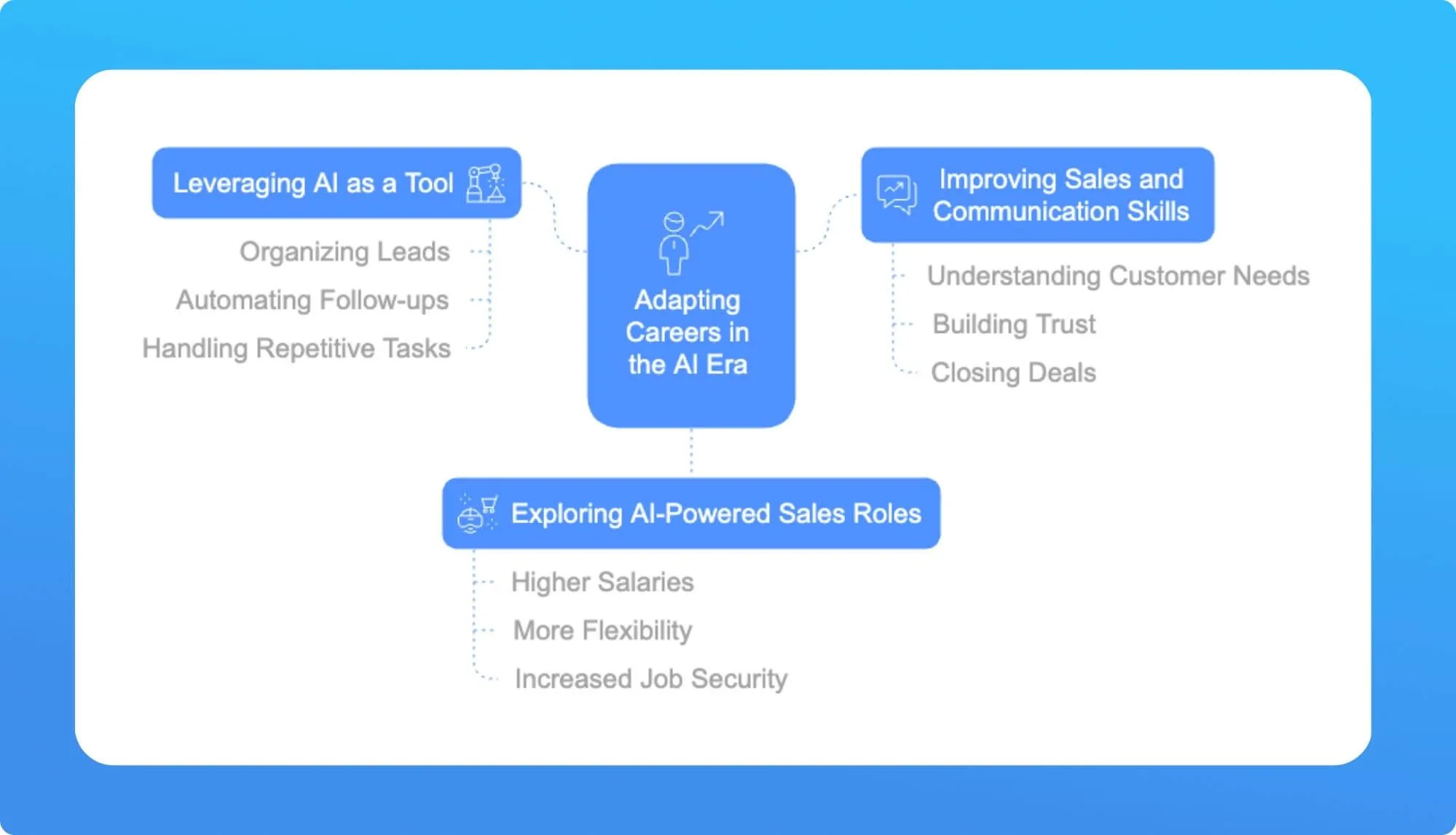Will AI Replace Telemarketers?
AI is changing telemarketing by handling routine tasks, but human skills still matter. Adaptability opens doors to new roles in sales and marketing.
Table of contents

AI is changing telemarketing by handling routine tasks, but human skills still matter. Adaptability opens doors to new roles in sales and marketing.
For years, telemarketing has been one of the most accessible jobs in the market. Many people get into telemarketing without prior experience, and it serves as an entry point into the sales and customer service industry.
But today, something is changing. Companies are using artificial intelligence (AI) to handle customer calls and messages—something that used to be a human-only task. Businesses are trying out automated voice assistants that talk to customers and chatbots that send messages instead of real telemarketers.
If you’re working in telemarketing, you might be wondering:
“Will AI take my job?”
“What will happen to telemarketers in the future?”
“Can I still make a good career in sales and marketing?”
These are important questions, and the answer is: AI is changing telemarketing, but it won’t replace telemarketers completely. Instead, it is taking over repetitive tasks while creating new opportunities for those who are willing to learn and adapt.
Let’s break it down in simple terms.

AI, or artificial intelligence, refers to computer programs that can do tasks that normally require human intelligence—like answering customer questions, making sales calls, and even sending emails.
Many companies are already using AI in telemarketing. Here’s how:
Have you ever received a phone call where a recorded voice asks if you’d like to sign up for a service or answer a survey? This is called an AI voice assistant.
Instead of hiring humans to make thousands of calls, companies use software that dials numbers and plays pre-recorded messages or even interacts with customers. These AI-powered systems can:
These automated systems are cheap for companies, which is why they’re becoming more common. But they are also impersonal and frustrating for customers, which means companies still need human telemarketers to handle real conversations.
If you’ve ever sent a message to a company on Facebook or WhatsApp and received an instant reply, chances are you were talking to a chatbot.
A chatbot is a computer program that can send automatic messages to customers. It doesn’t “think” like a human, but it can:
These AI chatbots help businesses manage a large number of customers at once. But they cannot build relationships, understand emotions, or convince customers to buy in the same way a human telemarketer can.
"Real-time AI guidance during calls has been a game-changer for me. When a customer mentions a competitor, the system instantly provides talking points, which helps me stay confident and prepared. It feels like having an expert coach by my side during every conversation."
– A testimonial from Callin.io about real-time AI assistance for telemarketers
In the past, telemarketers had to call hundreds of random people to find interested customers. Today, AI can help by analyzing customer data to predict who is most likely to buy.
For example, AI can:
This helps telemarketers waste less time on uninterested customers and close more sales.
Now that we’ve seen what AI is capable of, let’s look at where it falls short.
✅ AI can make thousands of calls per day without getting tired.
✅ AI can answer simple customer questions without human help.
✅ AI can send automated follow-up messages to potential buyers.
✅ AI can analyze customer data to find the best leads.
❌ AI cannot have real conversations like a human can. It follows scripts but lacks emotion and creativity.
❌ AI cannot handle objections—if a customer hesitates or asks a tough question, AI struggles.
❌ AI cannot build trust with customers. People prefer speaking with real humans when making big decisions.
❌ AI cannot understand emotions—it doesn’t know when a customer is annoyed, confused, or needs reassurance.
AI is good at handling simple, repetitive tasks, but it struggles with persuasion, negotiation, and emotional intelligence—which are the key skills of a great telemarketer.

AI is already replacing some parts of telemarketing, but not all. The jobs most at risk are the ones that rely on repetitive, script-based calling.
AI won’t eliminate telemarketing, but it is shifting the focus from repetitive calls to higher-value sales conversations.
"AI tools have made my job so much easier. Instead of spending hours cold-calling random leads, I now focus on high-quality prospects identified by AI. It’s like having a personal assistant that knows exactly who to call and what to say."
– A telemarketer quoted in Big Wolf Marketing's report on AI's impact on telemarketing
If you’re working in telemarketing, the best way to stay relevant is to learn new skills that make you irreplaceable.
Instead of competing with AI, learn how to use it to your advantage. AI can help organize leads, automate follow-ups, and handle repetitive tasks, so you can focus on the parts of sales that AI cannot do—like negotiation and relationship-building.
The most valuable telemarketers don’t just read scripts—they understand customer needs, build trust, and close deals. These skills will always be in demand, even as AI takes over routine tasks.
Many telemarketers are moving into AI-powered sales and marketing roles that use automation and digital tools. These jobs offer better salaries, more flexibility, and higher job security.
Some alternative careers for telemarketers include:
The best part? You don’t need to learn coding to do this.

AI is changing telemarketing, but it won’t replace human sales skills anytime soon. The smartest telemarketers are the ones who adapt—using AI to work smarter while learning new skills that increase their value.
If you want to stay ahead, now is the time to learn AI & NoCode tools that will open doors to higher-paying, future-proof careers.